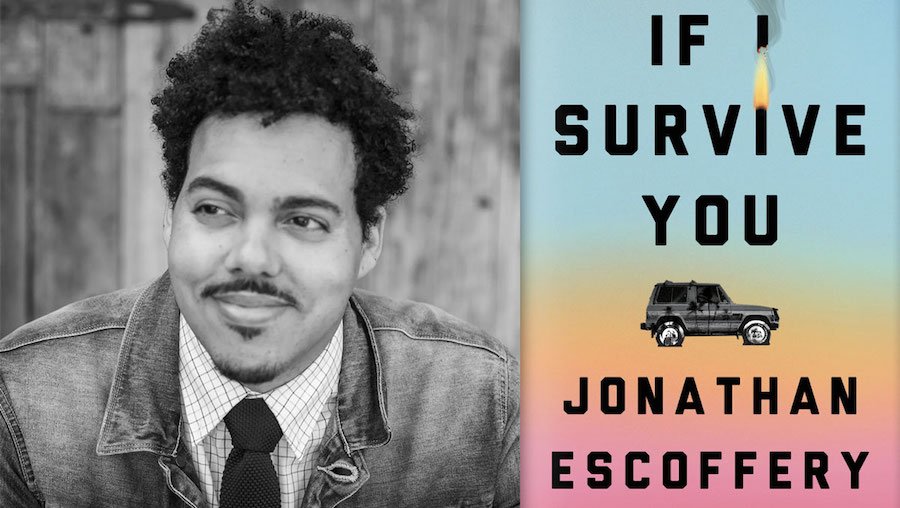One thing I love about doing this newsletter every week is seeing which articles rise to the top. Most of the time, the best pieces do not relate to one another at all. But other times, they do — almost like they’re having a conversation.
Today’s issue includes two article pairs. The first pair is about rest as a form of resistance against capitalism. The second pair is about education — specifically, who deserves to be educated. Let’s get a conversation going in the comments!
🥳 Speaking of conversation: See you tonight at Room 389 in Oakland beginning at 5:30 pm to celebrate HHH! I’m looking forward to it.
🎙️ Join this month’s discussion
This week, I re-read and annotated our article of the month, “The Colorblindness Trap,” by Nikole Hannah-Jones. It was even more powerful the second time around. I encourage you to read it and come discuss it with other Article Clubbers on Sunday, April 28, 2:00 - 3:30 pm PT. Everyone is welcome — especially if this will be your first time. I’m always impressed with the kindness and thoughtfulness that we have cultivated here at Article Club.
Sign up for the discussion on April 28
📚 All right, it’s time to get to the articles. Hope you enjoy them!
1️⃣ Rest Is Not Resistance, And That Is OK
I’m sure many of you are familiar with the Nap Ministry. For the past eight years, Tricia Hersey has promoted rest as a form of resistance against white supremacy. She writes, “My rest as a Black woman suffering from generational exhaustion and racial trauma is a political refusal and social justice uprising within my body.” Ms. Hersey’s refusal to engage in the requirements of capitalism has influenced me to rethink my ways and to embrace rest as a beneficial practice.
That’s why I found Trey Washington’s well-written essay on the limitations of the “rest as resistance” movement particularly thought-provoking. When Trey’s grandmother died, their friends and co-workers asked them, “Why don’t you take some time off?” in order to mourn their loss. Trey wanted to rest, sure, but they found it elusive, nearly impossible, given the demands of capitalism. “I did not choose not to rest. I was robbed of the possibility of even making that choice by a system that necessitates the maintenance of two things: my (return to) labor, and my perpetual exhaustion. Therein lies the problem.”
I deeply appreciated this piece for a number of reasons, including how Trey explores individual vs. collective notions of choice. In our society, rest and self-care are seen as individual choices, which “shifts the burden away from the very institutions that steal our time, energy, and resources in the first place, and onto the backs of the global majority.”
By Trey Washington • Scalawag • 10 min • Public Link
2️⃣ Get A “Fake Email Job” And Live “The Soft Life”
Maybe it’s impossible to break free of the shackles of capitalism, but ever since the pandemic, more and more (young) people are eschewing the age-old mindset that our vocation is central to our identity and worth. Those old days when we were supposed to care about our jobs? They’re over, at least for many of us.
If you land in that camp, I have good news for you: If you missed “the great resignation” and “quiet quitting” and “lying flat” and “bed rotting” and “lazy girl jobs,” here are a couple more ways you can escape the ills of capitalism, once and for all. You can strive to get yourself a “fake email job” in order to bask in “the soft life.” Typical day: Log onto Slack, reply to a few emails, browse the Internet for fun, take a long lunch and do a few errands, and play some video games. What do you think?
“Fake Email Job” • by Rebecca Fishbein • Bustle • 9 mins • Public Link
”The Soft Life” • by Leila Latif • The Guardian • 8 mins • Public Link
Both Gus and Gilly, who belong to loyal reader Rebecca, covet the territory of the ottoman. In this photo, Gus is refusing to give up his territory despite Gilly's encroachment on his personal space. Want your pet to appear here? hltr.co/pets
3️⃣ The Meltdown At A Middle School In A Liberal Town
Amherst, Massachusetts, is a little like Berkeley, California. It’s a college town where 90 percent of its 40,000 people voted for Biden, and where you can find Black Lives Matter signs in front of most homes. It’s a town where liberal white people seemingly try to out-do one another on how progressive, inclusive, and unracist they are.
That is to say — until you start talking about what’s best for their children at the town’s public middle school, Amherst Regional. In this well-reported article, Jessica Winter explains how multiple forces — racial tension, the treatment of trans kids, and the role of religion in schools — converged to cause the school to unravel.
This is not a pretty story. There is real harm (along with some pettiness). What was most striking to me was taking in yet another example of how deeply we’re struggling to be in community with our neighbors and to hold one another accountable, for the sake of our kids. This piece reminded me in some ways of “The Instagram Account That Shattered a High School,” last October’s article of the month, by Dashka Slater (which you should read if you haven’t already).
By Jessica Winter • The New Yorker • 20 mins • Public Link • Annotated
4️⃣ Welcome to Northwestern University at Stateville
Stateville is a maximum security state prison about 40 miles southwest of Chicago. The serial killer John Wayne Gacy was put to death here in 1994 by lethal injection. Now the prison incarcerates 1,500 men, most for life.
But this article is a heartwarming one of hope and the power of education. Writer Bryan Smith follows William Peeples and 15 other men as they graduate from the Northwestern Prison Education Program. They’re the first students in history to earn a college degree from a Top 10 American university, while being locked up.
While most of the credit should go to the graduates, I also appreciated reading about the dedication and resolve of Prof. Jennifer Lackey, the founding director of the program. She reminded me a little of Bryan Stevenson.
By Bryan Smith • Chicago Magazine • 22 mins • Public Link
Thank you for reading this week’s issue. Hope you liked it. 😀
To our four new subscribers — including Aaron, Nicole, Pat, and Jeff — I hope you find the newsletter a solid addition to your email inbox. Welcome to Article Club! Make yourself at home.
⭐️ You may have noticed a new feature this week: public links. I want to make sure that you don’t hit a paywall when reading articles in my newsletter. If the “Read the article” button leaves you stranded, click the public link instead. You’ll be sent to a clean reading experience that includes the entire article, as a gift to you.
Dear readers, if you appreciate Article Club, please feel free to leave me a voicemail, recommend the newsletter to a friend, or buy me a coffee. ☕️
Subscribed
On the other hand, if you no longer want to receive this newsletter, please feel free to unsubscribe below. See you next Thursday at 9:10 am PT.






















